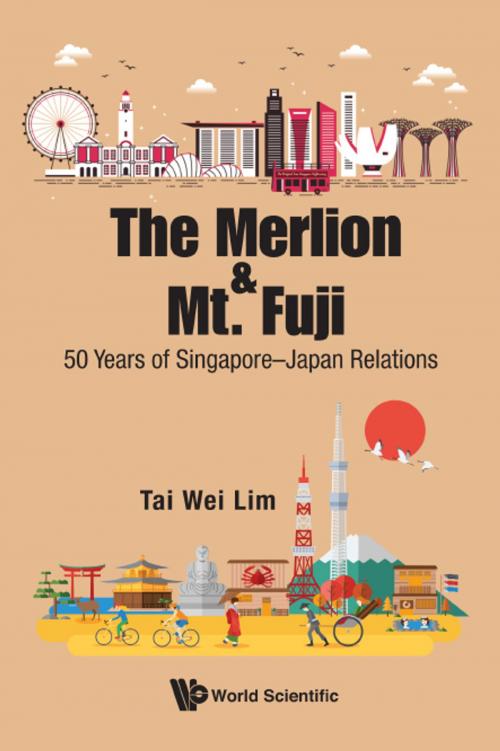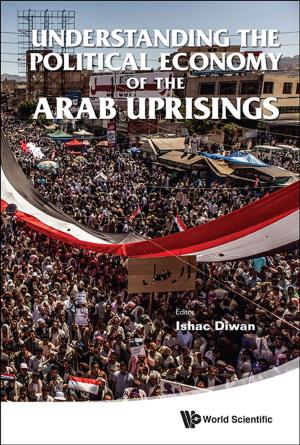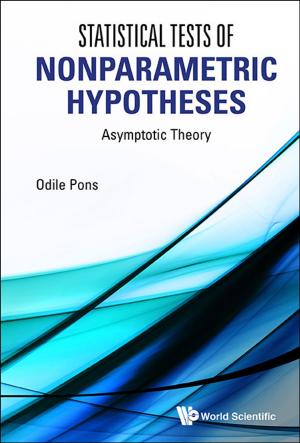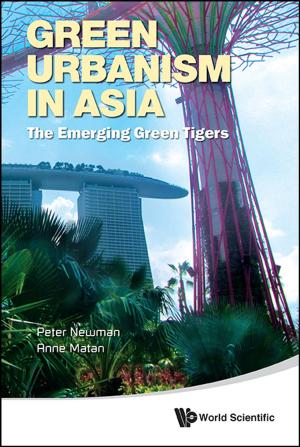The Merlion and Mt. Fuji
50 Years of SingaporeJapan Relations
Nonfiction, Social & Cultural Studies, Political Science, International, International Relations| Author: | Tai Wei Lim | ISBN: | 9789813145726 |
| Publisher: | World Scientific Publishing Company | Publication: | November 28, 2016 |
| Imprint: | WSPC | Language: | English |
| Author: | Tai Wei Lim |
| ISBN: | 9789813145726 |
| Publisher: | World Scientific Publishing Company |
| Publication: | November 28, 2016 |
| Imprint: | WSPC |
| Language: | English |
Anime, Manga, Sushi, Teriyaki, J-pop, Harajuku fashion ... these are just some of the cultural exports from Japan that the rest of the world have embraced and Singapore is one of Japan's biggest fans. Singaporeans have benefited not just by being a consumer of the many technological advances from Japan (Mitsubishi, Toyota, Honda, Panasonic, and Sony to name a few) but also shared and learnt through economic, political, and intellectual exchanges over the past 50 years since the start of the bilateral ties between these two nations.
In 1868, Japan was the first East Asian country that underwent rapid modernization and its development was shared with Singapore from the 1970s onwards as the Japanese growth model was selectively emulated by the Four Asian Tigers (Hong Kong, Singapore, South Korea, and Taiwan). Currently, as the most advanced economies in Southeast and Northeast Asia respectively, Singapore and Japan will continue to be demonstrative case studies of economic development in the region. There are similarities too between these two countries: an aging population, changing geopolitical realities, mature economies, and environmental challenges. The Merlion and Mt. Fuji is not just a historical account of the bilateral cooperation but also includes honest narratives on what it is like being a Singaporean student on exchange in Japan, an anime and manga fan outside of Japan, and some omotenashi appreciation.
Contents:
- Foreword (Kenji Shinoda)
- Foreword (Yoshihisa Godo)
- About the Author
- Introduction
- Political Exchanges
- Economic Cooperation between Singapore and Japan
- A Survey of Japanese Management in Singapore (Kong Tuan Yuen)
- Japan's Corporate Sector: Perspectives from a University Student (Aomi Poh Ming Ying)
- Hello, Mr Isetan: Recollection of Childhood Wonders (Janice Kam)
- Introduction to the Japanese Food and Business Sector: A Foodie's Perspective (Soh Hui Shi)
- Social Exchanges
- Singapore-Japan Exchange Programmes: Japan Encapsulated in a Singaporean View (Hilda Tan)
- Tourism and Travels: Notes from Fukuoka Travels
- Cultural Exchanges between Singapore and Japan
- Centering Akihabara: The Positionality of Tokyo's Pop-Cultural Nucleus in Cool Japan Industries and Globalised Fandom Consumption
- The Creative Economy in Japan
- Japanese Popular Culture from the Perspective and Opinions of a Fan Living in South East Asia (Yeo Kai Yeat)
- Another Fan Perspective: The Japanese ACG (Anime, Comics, Games) Popular Cultural Products (Sim Zhi Ya)
- Perspective from a Passionate Consumer of Japanese Pop Culture (Alvin Teo)
- Conclusion
Readership: Although academic in research, the context of the volume would also interest general readers, who are comfortable with historical facts and figures, and students taking Japanese or Oriental studies.
Key Features:
- It has an academic approach to examining bilateral ties between the two countries in an objective manner by relying on sources generated by both countries' stakeholders in the bilateral relationship
- It can potentially serve as an important reference for the large numbers of individuals in both countries responsible or have played a part in contributing to a bilateral relationship that have the hallmarks of contributing to regional peace, economic development and cultural diversity
Anime, Manga, Sushi, Teriyaki, J-pop, Harajuku fashion ... these are just some of the cultural exports from Japan that the rest of the world have embraced and Singapore is one of Japan's biggest fans. Singaporeans have benefited not just by being a consumer of the many technological advances from Japan (Mitsubishi, Toyota, Honda, Panasonic, and Sony to name a few) but also shared and learnt through economic, political, and intellectual exchanges over the past 50 years since the start of the bilateral ties between these two nations.
In 1868, Japan was the first East Asian country that underwent rapid modernization and its development was shared with Singapore from the 1970s onwards as the Japanese growth model was selectively emulated by the Four Asian Tigers (Hong Kong, Singapore, South Korea, and Taiwan). Currently, as the most advanced economies in Southeast and Northeast Asia respectively, Singapore and Japan will continue to be demonstrative case studies of economic development in the region. There are similarities too between these two countries: an aging population, changing geopolitical realities, mature economies, and environmental challenges. The Merlion and Mt. Fuji is not just a historical account of the bilateral cooperation but also includes honest narratives on what it is like being a Singaporean student on exchange in Japan, an anime and manga fan outside of Japan, and some omotenashi appreciation.
Contents:
- Foreword (Kenji Shinoda)
- Foreword (Yoshihisa Godo)
- About the Author
- Introduction
- Political Exchanges
- Economic Cooperation between Singapore and Japan
- A Survey of Japanese Management in Singapore (Kong Tuan Yuen)
- Japan's Corporate Sector: Perspectives from a University Student (Aomi Poh Ming Ying)
- Hello, Mr Isetan: Recollection of Childhood Wonders (Janice Kam)
- Introduction to the Japanese Food and Business Sector: A Foodie's Perspective (Soh Hui Shi)
- Social Exchanges
- Singapore-Japan Exchange Programmes: Japan Encapsulated in a Singaporean View (Hilda Tan)
- Tourism and Travels: Notes from Fukuoka Travels
- Cultural Exchanges between Singapore and Japan
- Centering Akihabara: The Positionality of Tokyo's Pop-Cultural Nucleus in Cool Japan Industries and Globalised Fandom Consumption
- The Creative Economy in Japan
- Japanese Popular Culture from the Perspective and Opinions of a Fan Living in South East Asia (Yeo Kai Yeat)
- Another Fan Perspective: The Japanese ACG (Anime, Comics, Games) Popular Cultural Products (Sim Zhi Ya)
- Perspective from a Passionate Consumer of Japanese Pop Culture (Alvin Teo)
- Conclusion
Readership: Although academic in research, the context of the volume would also interest general readers, who are comfortable with historical facts and figures, and students taking Japanese or Oriental studies.
Key Features:
- It has an academic approach to examining bilateral ties between the two countries in an objective manner by relying on sources generated by both countries' stakeholders in the bilateral relationship
- It can potentially serve as an important reference for the large numbers of individuals in both countries responsible or have played a part in contributing to a bilateral relationship that have the hallmarks of contributing to regional peace, economic development and cultural diversity















